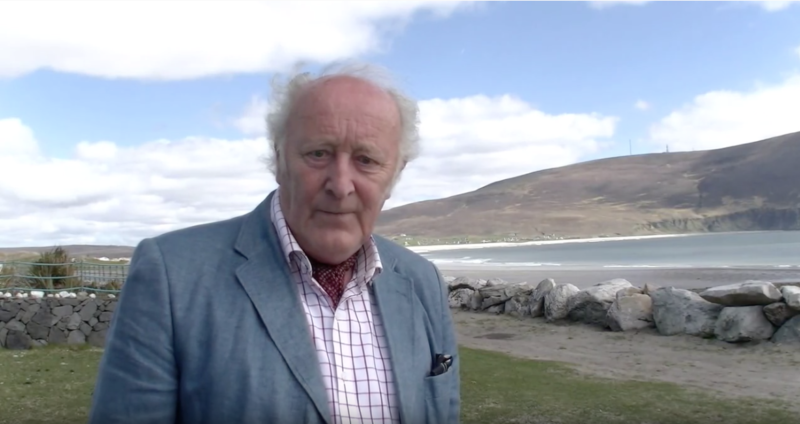Paul Webster was always confident that his short “docudrama”, The Vasectomy Doctor, was going to be a hit with audiences. “Even when I’m just describing it people’s jaws drop”, Webster tells to The University Times. “People are like: ‘Wait what? He was shot? I thought you said this was a documentary!’”
When I first saw The Vasectomy Doctor, I was unsure whether I was watching a documentary or a mockumentary – the film is that funny and that bizarre – though its use of archival footage did confirm that what I was watching had really happened.
Webster himself is interested in “how social issues progress”, and believes that things only change when “individuals push back against the system and stand up for what they believe in”. He was eager to make a film about such a person, and Dr Andrew Rynne is certainly one. Rynne is notable as the first doctor in Ireland who began to perform vasectomies.
Though the film covers the many obstacles that Rynne faced, such as opposition from the Catholic Church, The Vasectomy Doctor wisely zooms in upon one of the stranger incidents of his life: his attempted castration at the hands of a rifle-armed former patient in 1990.
The story is as strange as it is funny. The rifleman, Webster explains, was drinking in a local pub before the shooting, repeatedly saying that he was going to shoot the doctor. This being Ireland, “nobody believed him” and instead they just kept “winding him up and taking the piss out of him”. The rifleman was a man who was true to his word and later shot Rynne in the leg as he was mid-vasectomy. In the film, Rynne recalls his response: “You shot me you bastard!”
Immediately after the shooting (and after another four shots were fired), Rynne escapes, and his attacker makes his way to a local field. Here he attracted quite the crowd, as archival footage shows, as many Garda and other bemused onlookers surrounded him. The Gardaí fed the still-armed rifleman cigarettes so he could chain-smoke, and even brought him a pint of Guinness, as any thoughtful Irish person would.
Some five hours later the rifleman surrendered (presumably his lungs had given up at this stage), and he was eventually placed in a psychiatric hospital. Some years later, Rynne would visit his assailant, who actually apologised to him. The assailant explained that his postoperative pain and anger became exacerbated by his then-wife’s inexplicable pregnancy.
When he is not directing films, Webster spends his time writing for Fair City and other dramas, as well as running the podcast FNI Wrapchat.
His podcast consists of a series of interviews with those within the industry and is “very much aimed at filmmakers and those interested in the Irish film industry”. Though there are “a lot of similar American and British podcasts”, Webster feels that “they’re not really that relevant to Irish filmmakers”. Compared to those other film industries, the Irish one is much smaller, which means that “there’s only so much money to go around”. Webster insists that “the hardest thing about being a filmmaker in Ireland is trying to get funding”, and adds that “it’s nice to hear from others in the same boat”.
Webster advises any wannabe Irish filmmakers to “always write everything down” and to “come back to these ideas”. He also suggests that any aspiring filmmakers need to be “versatile” as getting funding can be both difficult and disheartening. To counter this, he believes that it is healthy for filmmakers to be working on different types of projects. More specifically, Webster believes that the key to being a good documentary filmmaker is to have “empathy and curiosity”. “If you can keep those intact,” Webster says, “even though the industry can be tough, you’ll make a good documentary maker”.
The Vasectomy Doctor will be showing this Saturday at the Irish Film Institute as part of its Documentary Film Festival’s Shorts Programme. For those who can’t make it, however, Webster’s previous films are all available to watch for free on his website, paulwebsterfilms.com.






